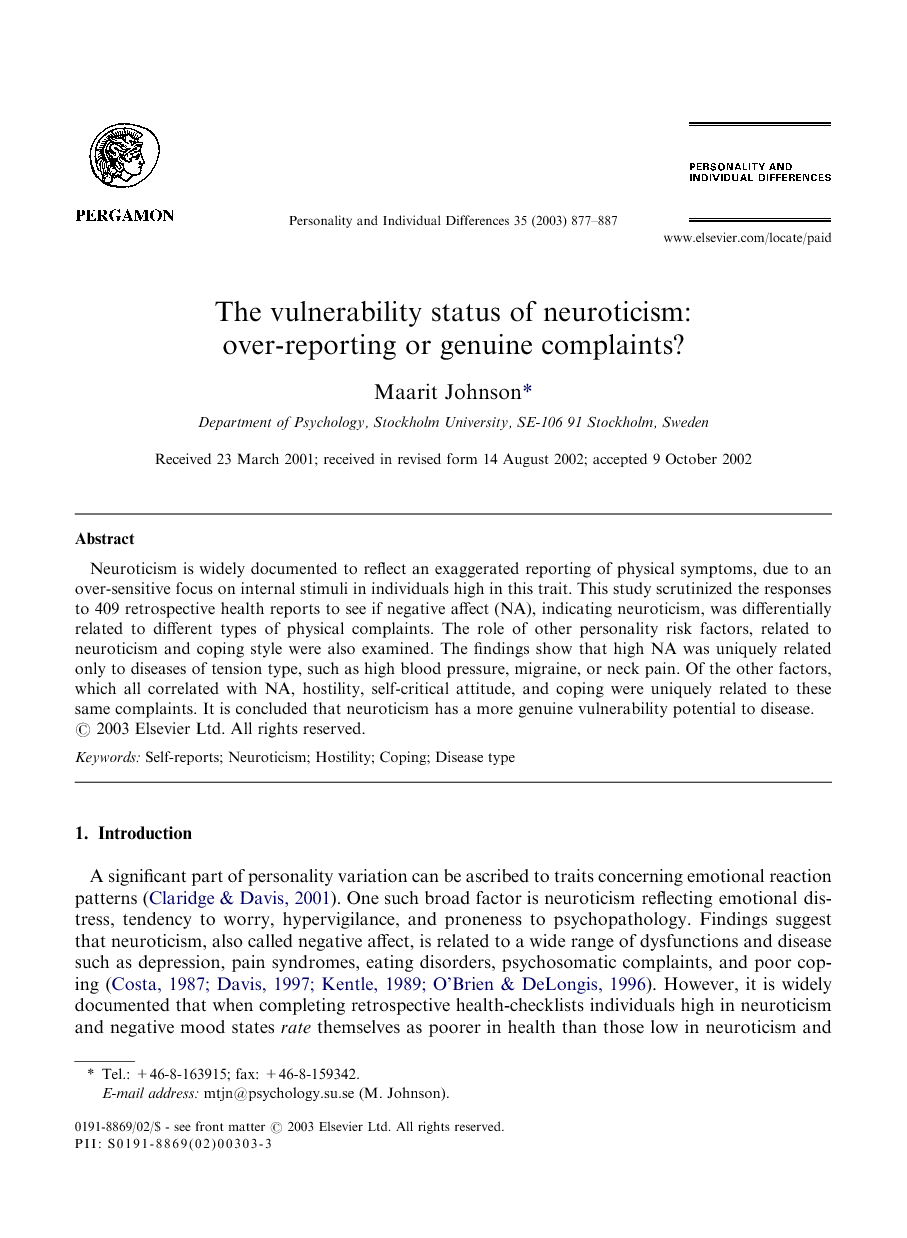ترجمه فارسی عنوان مقاله
وضعیت آسیب پذیری روان رنجوری:گزارش دهی یا شکایت واقعی ؟
عنوان انگلیسی
The vulnerability status of neuroticism: over-reporting or genuine complaints?
| کد مقاله | سال انتشار | تعداد صفحات مقاله انگلیسی |
|---|---|---|
| 35167 | 2003 | 11 صفحه PDF |
منبع

Publisher : Elsevier - Science Direct (الزویر - ساینس دایرکت)
Journal : Personality and Individual Differences, Volume 35, Issue 4, September 2003, Pages 877–887
ترجمه کلمات کلیدی
خود گزارش - روان رنجوری - خصومت - مقابله ای - نوع بیماری -
کلمات کلیدی انگلیسی
Self-reports; Neuroticism; Hostility; Coping; Disease type

